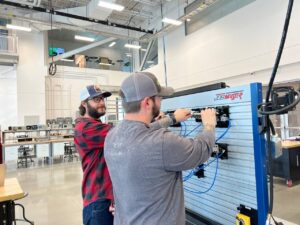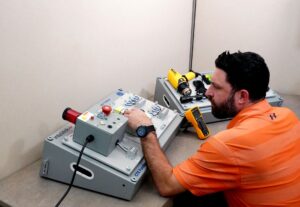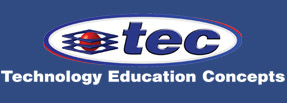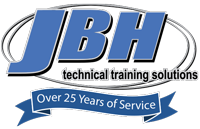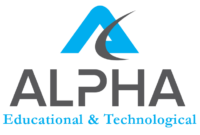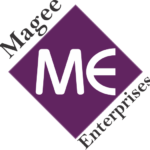In 2024, career and technical education (CTE) is evolving and expanding, becoming a fundamental part of the K-12 educational experience, and reaching more students than ever before. CTE has shifted from merely being an alternative to college to becoming a viable career pathway for many students.
CTE provides students with new perspectives, helping them understand why they’re learning what they’re learning in school and exposing them to a wide variety of career opportunities. Access to K-12 career and technical education opportunities prepares students for specialized career pathways and vocational schools. With a comprehensive CTE education, students are able to begin rich and rewarding careers in high-paying, high-demand jobs, whether they go on to higher education or directly into the workforce. .
The future of career and technical education is strong, with a high and growing demand for skilled workers in technical careers. As the industry and manufacturing continue to expand, K-12 leaders must provide high-quality CTE programming, which involves a focus on how CTE is changing to meet modern needs.
Here are five ways CTE is evolving in 2024:
- CTE careers have become highly attractive and offer diverse opportunities.
CTE career pathways were once considered to be appropriate only for students with few other options. Recently, there has been a significant shift in how students and educators view CTE, as well as the career opportunities it can provide.
Due to advancing technology, skilled workers are in high demand, particularly in industries like manufacturing that were once viewed as unappealing to individuals who pursued postsecondary education. Today, manufacturing jobs offer exciting opportunities to work with cutting-edge technologies, such as cloud computing, robotics, automation, and simulation software. CTE gives students a head start in preparing for high-growth, high-wage jobs, providing an opportunity for every student to thrive.
- It’s critical to teach students about CTE career pathways at an earlier age.
According to the Center for American Progress, introducing young students––particularly those in low-income communities––to a variety of career options can be an effective strategy for closing economic gaps and opening pathways to college and careers.
Many students first learn of CTE pathways and opportunities at some point in high school, during a career day or field trip. However, schools are finding ways to expose students to career education at younger ages, such as through STEM programs in elementary and middle school. Connecting students’ learning to potential career opportunities can improve their engagement in their education and set them up to make more informed choices about their future.
- Schools must take a creative approach to recruiting and hiring qualified CTE instructors.
When recruiting CTE instructors, schools and districts compete with industry employers for talent, which has led to a growing CTE teaching shortage. Schools were already struggling to hire enough CTE instructors before the pandemic, but in the wake of COVID, many educators have decided to leave teaching for the private sector.
With this in mind, schools must be creative to attract high quality instructors to their CTE programs. One option is to establish programs that can lead current students to become CTE instructors after graduating. It’s also important to keep the pay gap between education and the private sector in mind and find ways to establish flexible credentialing options that enable future instructors to transition to the education field without the financial burden of a master’s degree or teaching certificate.
- Virtual tools are emerging to support effective CTE.
Even in the past few years, technologies have been rapidly expanding and improving to support effective CTE for students of all ages. Between augmented (AR) and virtual reality (VR) software, simulation tools, online learning platforms, and artificial intelligence (AI), schools have access to a wide range of tools and technologies to support learning.
Virtual tools can be an effective way to improve access to CTE and provide students with a strong foundation that can prepare them for more rigorous CTE courses and programs. With virtual learning at their fingertips, students can begin career education without access to hands-on labs that require expensive technology and resources. For instance, a gamified computer science platform like CoderZ can help students build computer science and robotics skills at an earlier age and in a safe, virtual environment.
Intelitek have recently added RoboX to their training portfolio – a virtual industrial robotics solution specifically designed to migrate students from STEM to CTE.
- Policymakers must meet the need for more CTE funding.
With rapidly evolving industry technologies, schools just don’t have the funding to keep up with the needs of growing CTE programs. This results in a widening gap between the skills students are graduating with and the skills that employers require.
CTE programs are the key to providing students with a comprehensive and up-to-date education, closing this skills gap. However, for schools to get the resources they need, policymakers must legislate to make the necessary investments in CTE.
Introducing students to options as early as possible is critical to success – so developing CTE programs in high school and even in middle school is important. As technology and industry continues to change, K-12 leaders must prepare their students, instructors, and CTE programs to stand up to the test of time. With the support of educators, parents, and policymakers, CTE can help prepare students for the jobs of the future. By identifying and addressing the evolving nature of CTE, we can ensure CTE programs continue to empower students and bridge the gap between education and the workforce.


